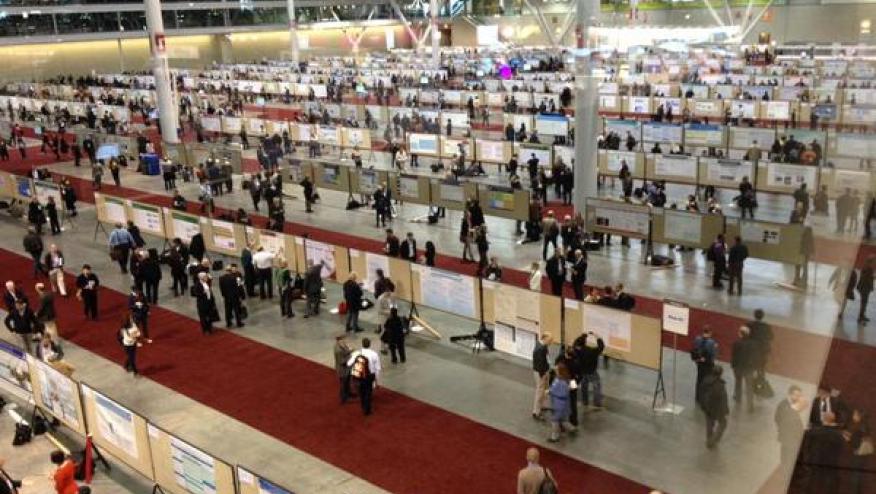ACR25 - Day 1 Report Save

ACR 2025 began today in Chicago with throngs of rheumatologists, fellows, ARP members, APPs and pharma folk taking to the meeting halls and rooms for tons of novel content.
The annual meeting began with a great "Year in Review" featuring Drs. Bryant England and Anne Davidson -- I heard it was fabulous but I missed this one.
Instead I was witness to the new 2025 ACR Guideline for the Treatment of Systemic Lupus Erythematosus. There were 65 such recommendations, and most of these were "conditional" (expert opinion) - but there were three that had strong evidence:
- All SLE should be on hydroxychloroquine
- All SLE patients should have their glucocorticoids rapidly tapered to < 5 mg qd by 6 months
- Lupus therapy should be escalated if a satisfactory response is not achieved
The Plenary session featured several strong presentations:
- Michelle Petri presented abstract #0772: Redefining When to Biopsy the Kidney in Patients with SLE
- Lupus patients with no history of LN and UPCR of 0.250 to 0.499 g/g PLUS another predictor of lupus nephritis (LN) were biopsied and many had LN abnormalities - LN was found in 69%, with 61% initiating mycophenolate (Class III and Class V) and 17% already showing some degree of chronicity. LN in such patients was predicted by a low C3 or C4
- Jun Ianmo presented abstract #0774: Longitudinal peripheral blood multi-omic profiling in at-risk individuals from the STOP- RA trial (that failed to show HCQ could prevent progression to RA). In this detailed study of cellular and serologic changes - they found that CCP3 and an increased number of peripheral helper T cells best predicted who would convert from clinically suspect arthralgia to RA.
Lastly, a TLR 7/8 inhibitor was in the spotlight as Eric Morand presented abstract #0802: Cutaneous manifestations of lupus treat with enpatoran, a small molecule toll-like receptor 7/8 inhibitor (a randomized placebo-controlled Phase II study). This was an exploratory post-hoc analysis of pooled data from the WILLOW study of enpatoran that showed efficacy in moderate-to-severe active SLE. This is an analysis of patients with moderate-severe cutaneous LE (CLE). Enpatoran showed significantly higher rates of CLASI-50/70 response, CLA-IGA and CLASI-A remission compared to placebo and significantly inhibited alpha interferon signaling.










If you are a health practitioner, you may Login/Register to comment.
Due to the nature of these comment forums, only health practitioners are allowed to comment at this time.